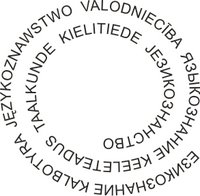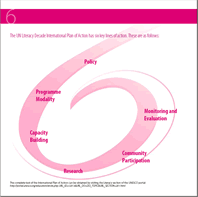
Related to the eigth International Science Olympiads(*) organized under the auspices of UNESCO, the 14th International Philosophy Olympiad (IPO 2006) was held last May in Cosenza, Italy.
The IPOs are organized every year in May, by one of the participating countries. They were initially proposed by UNESCO within the organization’s project on “Philosophy and Democracy in the World”, to promote national and international competitions with the aim of “encouraging the practice of philosophical, critical thinking and stimulating, through competition, the interest of young people in philosophy”. They are open to high-school pupils from every country in the world.
Each country can participate with one or two pupils, with the exception of the host country which may participate with a maximum of 10 pupils.
Even though the U.S. hosted the 9th Olympiad ( IPO 2001) in Philadelphia, PA, we regret to note that the U.S. does not seem to continue to be involved any longer.
Along the lines of the IPO, the 4th International Linguistics Olympiad for Secondary School Students took place from August 1st – 6th, , 2006 at the University of Tartu, Estonia.
The International Linguistic Olympiad (ILO) is the youngest one in the group of science olympiads. The setup is somewhat different from the other science olympiads, as both individual and team contests are on the program.
The idea of holding an International Olympiad stems from a long tradition of Linguistics and Mathematics Olympiads organised in Moscow and St. Petersburg, Russia. This olympiad furthers the field of mathematical and theoretical linguistics. Like all science olympiads, its problems are translated and completed in several languages and as such must be written to be free of any native language constraints.
Related Readings
* International Philosophy Olympiad website
* International Linguistic Olympiad
* Our posting on "The US Wins Gold and Silver Medals at the IOI"
(*) Informatics IOI, Mathematics IMO , Physics IPhO, Chemistry IChO, Biology IBO, Astronomy IAO, Geography IGEO, and The International Linguistic Olympiad ILO. All them, are for young students, High School Students, less than 20 years old.
© Logo: Tartu Ulikool
